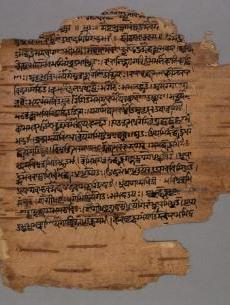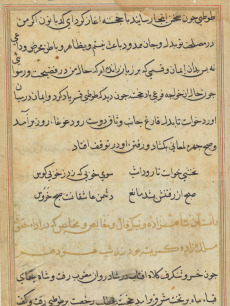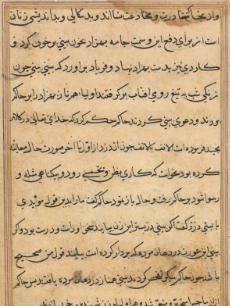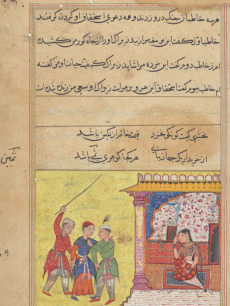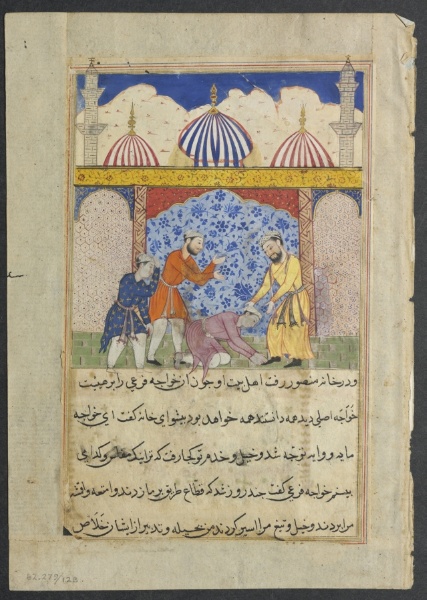
The young man, who has magically taken on the appearance of Mansur the merchant, arrives at his home, from a Tuti-nama (Tales of a Parrot): Seventeenth Night
c. 1560
Mughal India, court of Akbar (reigned 1556–1605)
See Also
Visually Similar Artworks
Contact us
The information about this object, including provenance, may not be currently accurate. If you notice a mistake or have additional information about this object, please email collectionsdata@clevelandart.org.
To request more information about this object, study images, or bibliography, contact the Ingalls Library Reference Desk.
All images and data available through Open Access can be downloaded for free. For images not available through Open Access, a detail image, or any image with a color bar, request a digital file from Image Services.
